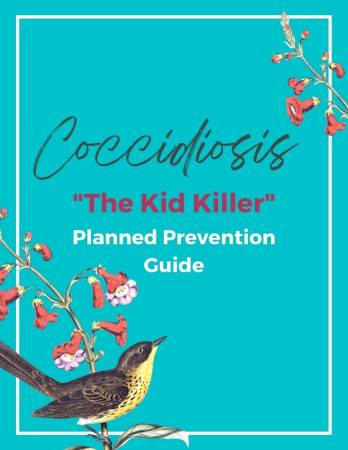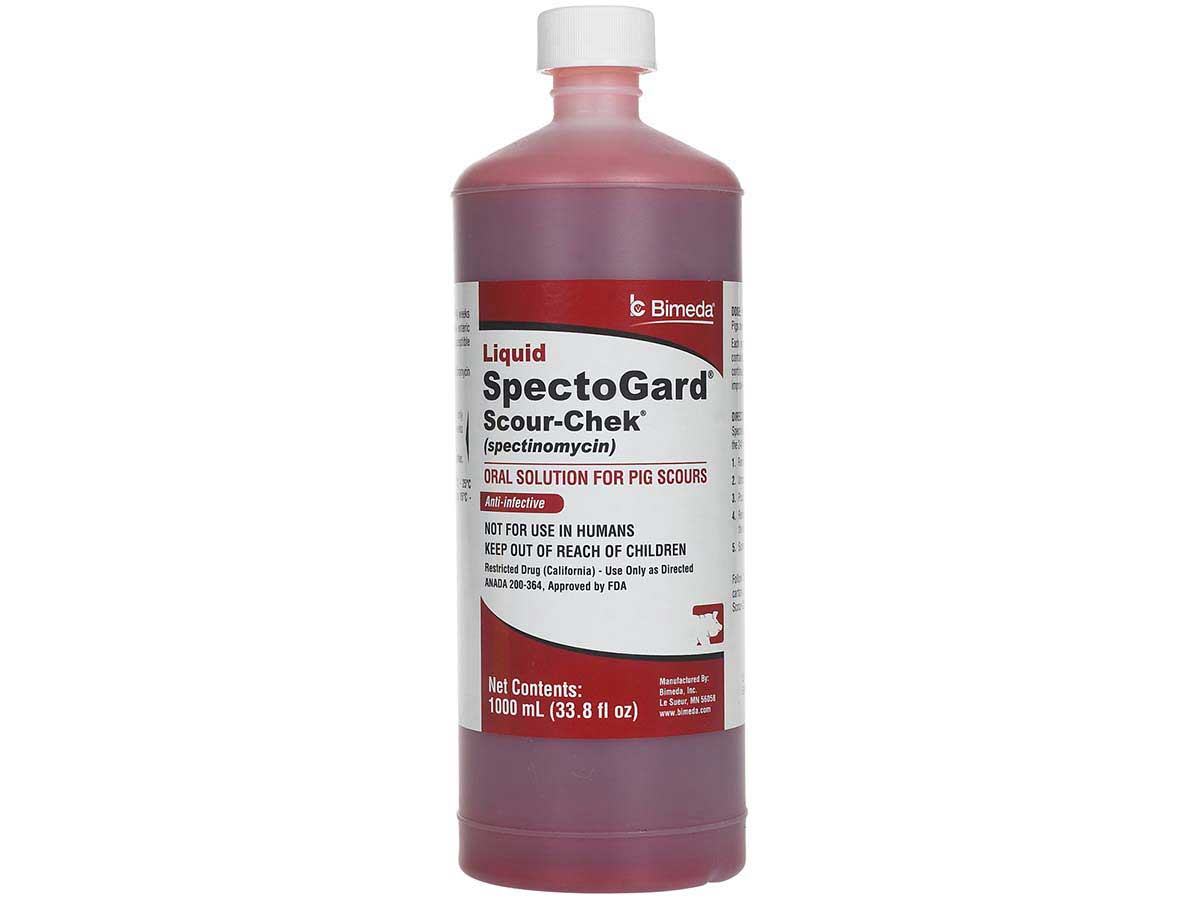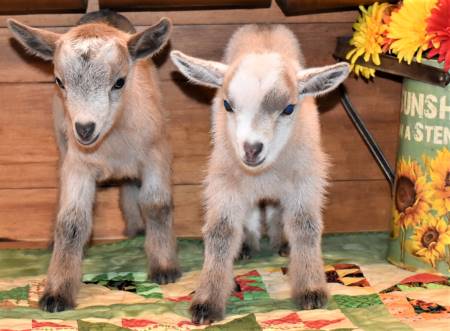Coccidiosis in Goat Kids

Original price was: $103.36.$93.28 FREE SHIPPING.
REMEMBER, HOMELABVET.COM IS IN THE EUKRAINE, THUS IT TAKES 2-4 WEEKS TO ARRIVE. If you need something to keep your kids alive until the Baycox from Homelabvet.com gets to you, order the one I listed first off of Amazon.
- What are the symptoms
-
What is Effective Prevention & Treatment
-
When to Start Treatment
- How does it work
-
Where to order Product to Treat Coccidiosis
- Symptoms: Dirty tails from diarrhea, very smelly diarrhea, reduced feed intake, weakness, and anemia. Kids may be straining while passing feces, and diarrhea can be watery or contain mucous and blackish-colored blood.
- A Coccidia Treatment: Deccox or Rumensin (Monensin) feed for the first four months or administer other coccidiostats as recommended by a veterinarian for your area. Deccox can also be added to loose salt at the rate of 2 lbs. Deccox to 50 lbs. loose salt. There are several Bovatek salts available that don’t need to be mixed. Sweetlix makes a mineral salt containing Rumensin.
- AppleJo Farm uses Baycox 5% or its Generic Toltrazuril 5% only for Coccidia Prevention & Treatment. It's gentle on their stomach and it's a one-two Dose treatment. Commercial sheep breeders in other countries have been using it for years, because it is highly effective and really saves lives.
- Dosage for Prevention and Treatment: Kids should get 1 dose at 7-12 days (remember Baycox 5% or Toltrazuril 5% is active against all intracellular stages of coccidia), and 1 dose when they are weaned at 8 weeks, then 1 dose at month 3. Dosage: give orally 1 ml up to 5.5 lbs. and 2 ml for over 5.5 lbs & up. You may choose a different treatment schedule, this is the one that works for me. If your kid already has runny stools, it will likely need 1 or 2 ml of Pepto Bismol to help stop. Do not give anti-diarreheal medication more than once, along with the Toltrazuril 5%, as you do not want to cause constipation.
-
Shake well before use. Each animal should be treated with a single 1 mL dose of Baycox per 2.5 kg or 5.5 lbs. body weight. Administer a single oral dose at 7-12 days. (Note if you get a kid that obviously has developed coccidiosis, dose them immediately.)
-
To obtain maximum benefit, goats should be treated in the prepatent period before the expected onset of clinical signs. The prepatent period of Eimeria ovinoidalis is 12-15 days and the prepatent period of Eimeria crandalis is 15-20 days.
- Just to emphasize, To obtain maximum benefit, kids should be treated in the prepatent period- before the expected onset of clinical signs.
- Fact: Toltrazuril 5% (Baycox) is active against all intracellular stages of coccidia.
- Storage: Store below 86 degrees F. Protect from freezing. I store it in my barn drug refrigerator.
- Does it work at all stages of coccidia development?: Toltrazuril is active against all intracellular stages of coccidia, including schizonts, micro and macrogamonts. It interferes with the division of the protozoal nucleus, the activity of the mitochondria and damages the wall forming bodies in the microgametes. Toltrazuril produces severe vacuolisation of the protozoal endoplasmic reticulum in all intracellular development stages.
How long does it last: After oral administration, toltrazuril is absorbed slowly from the gut, indicated by a radio-active study using [triazine-2-14C]-marked toltrazuril. This is followed by a long-lasting distribution among the different compartments of the body. The plasma half-life is about 170 hours in lambs & kids (approx. 5 days). Excretion is characterized by a high fecal fraction with a relatively high excretion rate. There is no significant enterohepatic circulation.
Clinical Findings of Coccidiosis of Goats:
Merck Vet Manual
Most clinical cases occur between 5–8 weeks of age. Most goat kids have inapparent infection. In subacute or acute infections, the usual signs are poor fecal pellet formation (pasty feces), decreased appetite, stary coat, and decreased weight gain. More severe acute cases show diarrhea with or without blood presence, possible tenesmus, dullness, anorexia, and weight loss. Severe problems lead to rapid onset of diarrhea, often with blood, tenesmus, signs of abdominal pain, lethargy, weakness, recumbency, and death. In chronic infections, there is increased time to puberty, increased time to finish, decreased weight gain, and decreased feed intake.
In most countries, few or no treatments are licensed for goats, although products licensed for cattle and sheep are often available which is the case in the USA. Water and feed intake is usually decreased in ill kids, so it is best to treat by drenching rather than rely on including any medicine in the drinking water or feed. It may be necessary to use electrolyte and nutritional solutions to feed ill kids because they can become anemic from the coccidia.
Natural products such as Lespedeza cuneata in feed pellets have decreased fecal signs and oocyst counts in kids. However, relying on this alone, to prevent coccidiosis in very young kids, is risky.
In the first few days after birth, if a kid has diarrhea, it is not coccidiosis.
What Can Cause Foul Smelling Diarrhea in the first 3 weeks after a kid is born?
Last week, a goat breeder from Maryland contacted me and related that she had a kid who was 1 day old with runny stools. She noted a terrible odor to the loose stools on day 2.
-
Could this be coccidiosis in a one day old goat?
No. Coccidiosis in goats is a complex, multifactorial problem. Coccidiosis in goats is caused by various Eimeria species of protozoan parasites. Transmission of coccidiosis to kids occurs when infected animals shed the organisms in feces, resulting in contaminated feed or water. When clinical disease occurs in kids, it is often because of the periparturient (around the time of birthing, temporary loss of naturally acquired immunity to internal parasites that results in higher shedding of gastro-intestinal parasite eggs). rise in oocyst (An oocyte is an immature egg cell) excretion in pregnant does, probably compounded by residual infection in the environment and exacerbated by multiplication through successive groups of kids. Usually, clinical signs occur in 1- to 2-month-old kids when large numbers of oocysts are ingested over a short period.
Most goat kids have inapparent infection. In subacute or acute infections, the usual signs are poor fecal pellet formation (pasty feces), DIARRHEA, particularly mucoid (having lots of mucus), smelly, and sometimes bloody, decreased appetite, stary coat, and decreased weight gain, anemia (low red blood cell count), and dehydration.
So what can cause smelly diarrhea in a 1 day old goat kid?
Bacterial enteritis: . Enterotoxigenic Escherichia coli
(ETEC) and Cryptosporidium parvum are considered
among the most prevalent causative agent of enteritis
in goats, E.coli.
Severe enteritis culminates in death due to severe
dehydration.
What have you used successfully for ecoli in goat kids?
Hydration must be maintained by offering milk or milk replacer in small amounts in short intervals. - Many use this product for E.coli with success: SpectoGard Scour-Chek is used in baby pigs to treat and control scours caused by E. coli. It is intended for use in pigs that are under four weeks old and weigh less than 15 lbs. SpectoGard Scour-Chek contains spectinomycin, an antibiotic with a fast method of action and high efficacy. For pigs less than 10 lbs, give 1 ml orally twice daily; for pigs over 10 lbs give 2 ml orally twice daily. Spectinomycin. So to use this for kid goats, it would be used OFF LABEL as many medicines for goats is used. The same dosage applies for kids.
Please note that this item requires a veterinarian's prescription because it contains an antibiotic.

-
Consult your Veterinarian about possible treatment with antibiotics and administering an anti-diarrheal medication.
-
Information credit: Merck Vet. Manual
Important! Please Read The Following Notice!
All information provided in these articles is based either on personal experience or information provided by others whose treatments and practices have been discussed fully with a vet for accuracy and effectiveness before passing them on to readers. Much of my page content is from Veterinary Colleges and Manuals.
In all cases, it is your personal responsibility to obtain veterinary services and advice before using any of the information provided in these articles. JoAnna Mertz is not a veterinarian. Neither JoAnna Mertz nor applejofarms.com nor any of the contributors to this website will be held responsible for the use of any information contained herein.
E.coli and Coccidiosis in Kids
Note: SpectoGard treats E.coli only and
treats Coccidiosis only
The following is included for any who are concerned that Baycox or Toltrazuril is unsafe to use because it is not FDA approved yet in the U.S.
Adverse Reactions:
Although all adverse reactions are not reported, the following adverse reaction information is based on voluntary post-approval drug experience reporting. It is generally recognized that this method of reporting results in significant under-reporting of adverse drug reactions. It should be noted that suspected adverse drug reactions listed here reflect reporting and not causality. The categories of adverse reactions are listed in decreasing order of frequency by body system.
Lack of efficacy has been reported in countries other than Canada. To reduce concerns associated with lack of efficacy, follow label instructions regarding correct dose and timing.
Studies indicate that the metabolite, toltrazuril sulfone, accumulates in soil when undiluted manure from treated feedlot cattle is repeatedly spread on the same agricultural field. This may affect groundwater and negatively impact the growth of certain crop species.
If you do not have a feedlot full of kid goats which are being dosed with Baycox, this is not a concern obviously.
Personally, I have never seen any documented information on adverse reactions from goat kids getting proper dosages and applications of Baycox or Toltrazuril. If you see documentiation, please share it with me.



Powered by Boutique Store Builder . Web Design by Avalon Rose Design.


